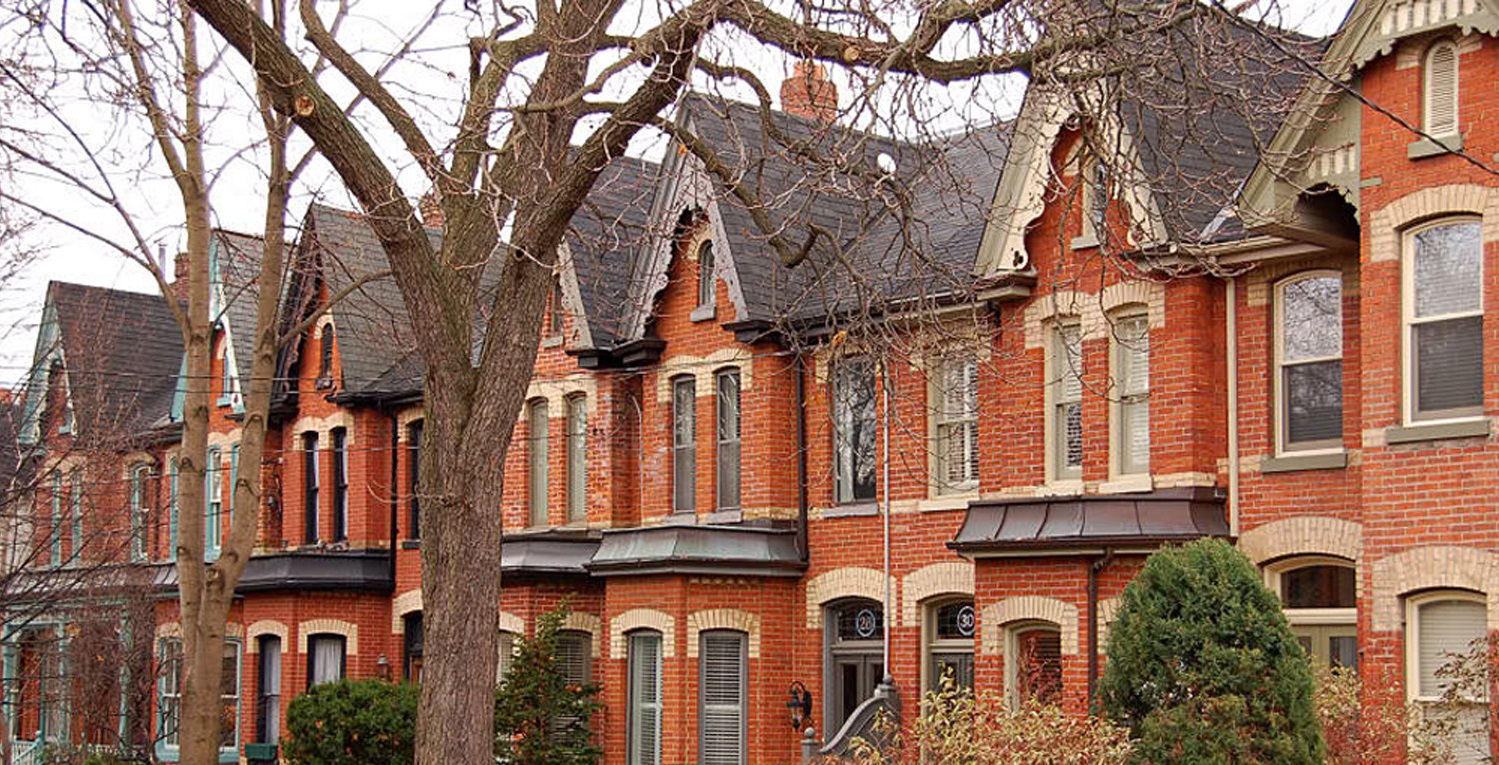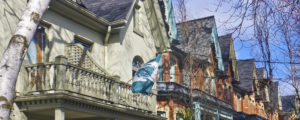The Cabbagetown Heritage Conservation District Advisory Committee has been hearing from home owners in the HCD that they have recently had difficulty renewing their replacement-value home insurance policies and some have faced delays or higher rates in obtaining insurance coverage from another insurer. The insurance brokers clam the issue is the heritage designation.
We have been in touch with the city and Heritage Preservation Services, which says the issue is a misunderstanding by insurance agencies of the rules of heritage preservation. Heritage buildings should not face higher premiums because of designation.
Kristen Flood of HPS explains:
We have had instances where insurers believe that properties located within HCDs must be reconstructed in their original form if they are subject to fire or substantial demolition; this misconception may result in higher premiums or increased replacement value estimates. This is not correct, however; reconstruction of the original house is not required under the Cabbagetown HCD Plans. New houses may be built of contemporary materials and to a contemporary design that is sympathetic and compatible with the character of the neighbourhood.
Here is a link to an information sheet prepared by the province regarding insurance and heritage properties:
http://www.mtc.gov.on.ca/en/publications/Heritage_Insurance.pdf
The significant items are:
Will heritage designation make my property insurance premiums go up?
Your premiums should not go up as a result of a heritage designation. A variety of other reasons cause insurance companies to increase premiums for older buildings if there is a higher level of risk, such as services (out-dated wiring, old heating systems, etc.). In fact, some companies do not insure buildings over a certain age. Designation itself, however, does not place additional requirements on the insurer and therefore should not affect your premiums.
What happens if a building is destroyed by fire, or some other accident? Would it have to be rebuilt as it was?
The intent of designation is to preserve the historic, physical, contextual or other community heritage value of a property. If a building on a heritage property is completely or partially destroyed, the designation by-law does not oblige the owner to replicate any lost heritage attributes. A replacement building, for example, can be of a different design.
What if I want the original features of my property to be replicated in case of damage?
if this is what you want, make sure you’re properly covered. Insurance coverage for this depends on the degree of risk you and your insurance company are prepared to share. The age, quality and condition of your building will affect what coverage is available and the premium charged. “Replacement cost” coverage requires prior insurance appraisal of the building. It generally provides for the property to be repaired or replaced with like kind and quality up to the amount stated in the policy.
Heritage Misconceptions Create Insurance Issues
It’s not just heritage homes, older buildings in general are facing misconceptions that can create problems with insurance coverage, specialists said at an Insurance and Heritage Properties webinar arranged by the National Trust for Canada.
An Insurance Bureau of Canada survey of 930 owners of buildings across the country built before 1940 found that fuzziness about what replacement cost entails continues to have a chilling effect on underwriters of insurance policies. About 38 per cent of those surveyed said they have had difficulty in getting new policies or renewals in the past 5 years. However, most of their increases in premiums were less than 20 per cent over that time.
A big issue is the confusion underwriters have about replacement cost of a heritage building. “No body insures or appraises for reproduction costs—a loss will be replaced not reproduced.,” said Marc Lefebvre, underwriting co-ordinator of the Insurance Bureau of Canada.
“Insurers’ big concern when they have a heritage designation is: are they going to have a heritage committee say it needs to this kind of door or window with heritage approvals that can add months of delays and extra costs for alternative housing,” he said
The important thing to emphasize is that there is no such thing as reproduction insurance, he explained. Replacement doesn’t mean you have to go to architectural salvage yards; it means the replacement will be in complimentary modern materials. Provinces don’t have specific guidelines and they should, he added. In fact, in Ontario HCD designation doesn’t require replacement-i- kind of a building. It can be a building of any design.
Another big sticking point with any older building is the insurer wants proof that the home has updated mechanicals and has had replacement of roofs and electrical systems. “If not, the answer will be no,” he said.
There is a general perception that older properties present high risks Making it clear that a heritage property has been well-maintained can help reassure insurers, panelists agreed.
The National Trust is beginning a process to set out guidelines for insurers and the public about heritage properties.
More information is on their website: https://nationaltrustcanada.ca/what-you-can-do/advocacy-action/insurance-and-heritage-properties



